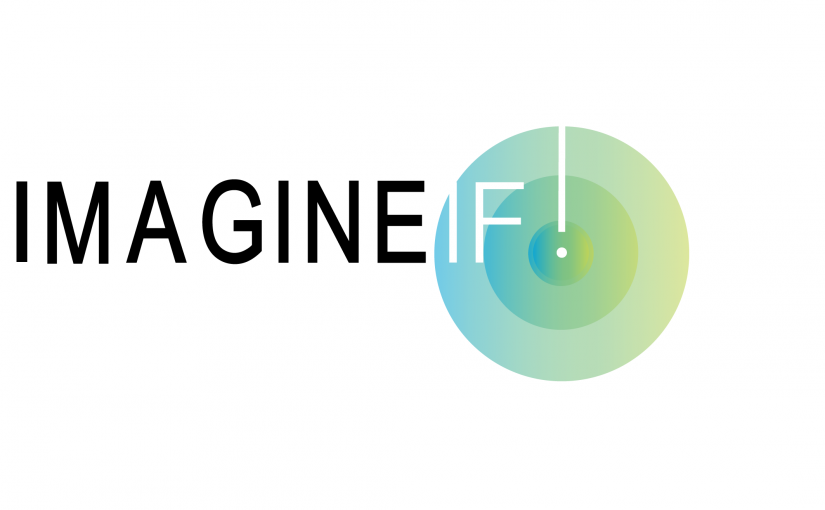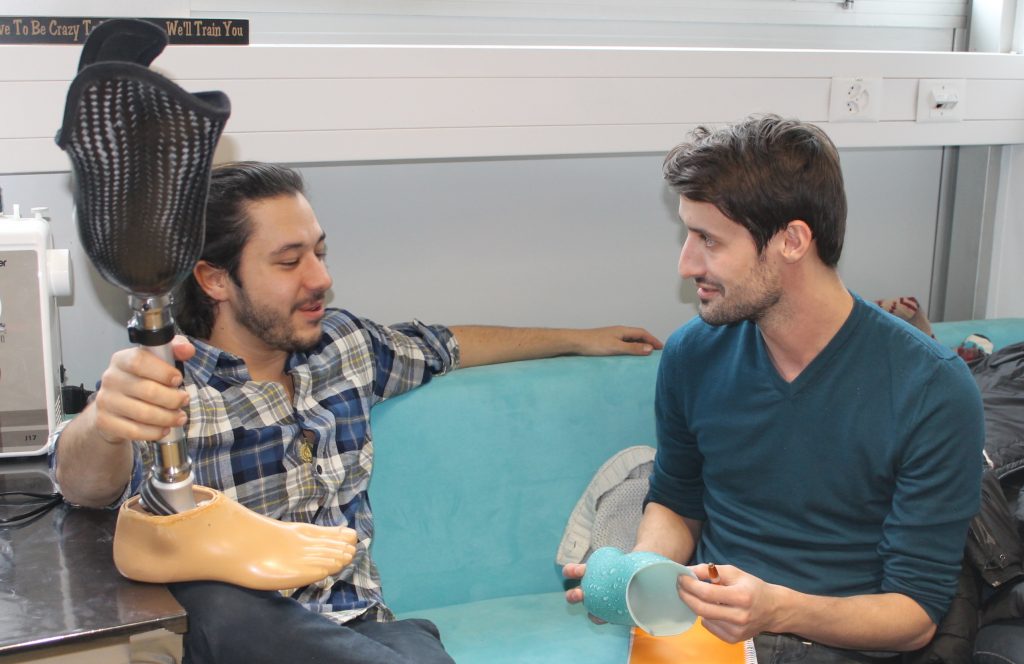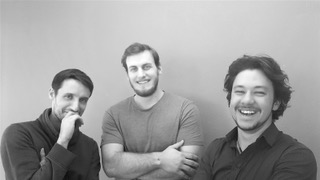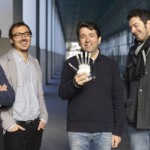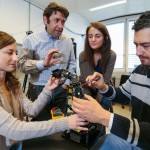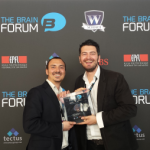Innovator of the Month Interview by Alessia Baldo and Martina Genta
QGel is a Swiss start-up based at Lausanne’s Innovation Park, which develops synthetic extracellular matrices (ECM) for the growth of cells outside the body. The ECM is an important material that surrounds cells of the human body, which helps regulate tissue development and maintain homeostasis. Depending on the tissue – eye, bone, brain, muscle, etc., the ECM provides specific biological, biochemical and mechanical cues that affects cell proliferation and tissue health. QGel specializes in creating cell-specific synthetic ECMs that can sustain growth of different cell-types, including freshly isolated patient cells as well as established organoids, offering novel applications for more accurate in vitro disease models. These models can be used as a tool to influence clinical decision-making and save lives. QGel has raised CHF 20M of funding so far and is part of the Scale Up Vaud Community. We interviewed Dr. Colin Sanctuary, CEO & founder of QGel.
IF Lausanne [IFL]: Can you briefly describe how QGel was born?
Colin: We thought about the possibility of creating a start-up for the first time 9 years ago. My background is in soft tissue biomechanics and tissue regeneration and after my PhD I worked in two multinational medtech companies. This gave me the possibility to learn how to operate within large corporate structures and discover new aspects related to marketing, sales and business development. Then, in 2005, I had the opportunity to come back to this region, where I reconnected with a former classmate, and by combining our knowledge and experiences we decided to start QGel.
The initial spark that ignited the founding of our company can be attributed to a mix of luck and circumstance, which is common to most new breakthrough events.

IFL: How does your company differentiate from competitors and existing alternative technologies?
Colin: There are mainly two main points that differentiate us from other companies: the first one is scalability, i.e. we can manufacture cost effectively, and the other one is quality, i.e. we are able to maintain consistency, especially as we scale. If you envision making cancer a manageable disease, you not only need a gel where you are able to culture primary cells from patients, but you actually need something that you can manufacture in sufficient quantity and in a standard and reliable manner so that it is used at a scale large enough to make a real impact for patients. This is what it takes to move from the lab to the clinic. And I believe, thanks to its synthetic yet biologically relevant nature, this is how our extracellular matrix gel stands apart from the existing technologies.
Our technology allows taking the organoid technology from the lab and enabling its adoption in the clinical setting to benefit society.
If you want to know more, you can watch the explicative video about QGel ECM Technology here.
IFL: How did the Lausanne environment help you in creating QGel?
Colin: The EPFL environment is extremely helpful at the early stage of a start-up. Being located right next to EPFL is a huge benefit to tap into expertise and to use facilities that no early stage startup could normally afford. However, I think that this already amazing environment can be further improved, if I can give a suggestion: why only open innovation to PhD students with affiliation to the university? We should be able to welcome people from industry too, to help strengthen the ecosystem, increase the networking and create that essential spark I was talking about before.
IFL: What did you learn in the process of creating this startup? And what did you enjoy the most during the process?
Colin: When I finished my undergraduate degree I wanted to escape from the bubble of technical knowledge and I decided to travel. I was hitchhiking all over the place and the most important thing I achieved was learning more about myself. Right now, what I enjoy the most about the start-up life is the feeling that I had while I was travelling: constantly learning, discovering and pursuing a general direction without knowing where I would end up, but at the same time I could feel the direction was generally correct. Similarly, the feeling I get now is the feeling that I am sticking out my thumb in an educated way based on acquired knowledge and we are moving the company forward in the right direction.
We are still venturing into the unknown, creating a path alongside the future end users of our products, while being true to the science and being true to who we are.
Beyond this, one of the most important things I learned in creating this startup is to stay true to your personal values. Ours are: trust, respect, teamwork, courage and commitment.
IFL: If you could go back in time, what would you do differently?
Colin: There isn’t much I would do differently and it is always easier in hindsight. Instead of giving you a precise example, I would say that it is important to have a clear understanding of when, where and how you have failed in order to understand how you need to improve for future decisions.
I like to look at failing in a positive way, I look at failure as the mother of all successes. I continue to learn a lot from talking with other experienced entrepreneurs who have been faced with similar challenges.
Likewise, young and hungry entrepreneurs come to me and I do my best to pass on what I can, to help succeed where I could have done things differently.
IFL: At the end of 2016 you raised 12M of funding and last year you joined the Scale Up Vaud Community. Tell us a bit more about how you managed to take this “big step”.
Colin: The key is to believe in what you are doing. The start-up life is not as easy or as fun as some people might think. You need to convince investors in believing in your idea, which can be difficult if you are creating a new market space. The best way to do this, especially in the life science field, is by providing solid data. Data are absolutely critical, and the entire team must not be afraid of inevitable set-backs, but rather see them as important steps to success. The only way to convince other people is to tell a story in which you and all your team believe and is supported by evidence-based science engrained in a well thought thorough business strategy.
I think that’s how we achieved it: it’s in believing in ourselves and moving beyond failure.
IFL: What are the plans for the future?
Colin: As I said before we want to make cancer a manageable disease. I truly believe that this is possible with the technology that exists today, but it is not going to happen in a finger snap. We still have a long and intense way to go. We have a clear roadmap that we will continue to develop, by partnering with healthcare institutions to accelerate the adoption of our gel, while continuing to make it available for more cancer types. I am convinced we will successfully achieve this and we will play an important role in saving lives. So this is my plan: keep driving this forward and make a difference.

IFL: What advice would you give to young entrepreneurs or to people that would like to become entrepreneurs?
Colin: The first piece of advice I would give is to be self-aware on what you are good at and what you are not good at. This is extremely important for building a new career. You need to fill your gaps with skilled people around you that can constantly challenge you. If you have a great idea, start thinking about the potential market and about what you know about it, then be curious about different fields. Identify what you are capable of doing, and where you need additional expertise. When I was still a student, I was talking with the former CEO of Medtronic, Bill George, a man I admire, and I asked him what I could have done to escape from being trapped in an academic environment and, amazingly, he replied saying: the first step is already done. You are aware that you want to learn about business.
